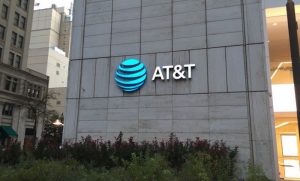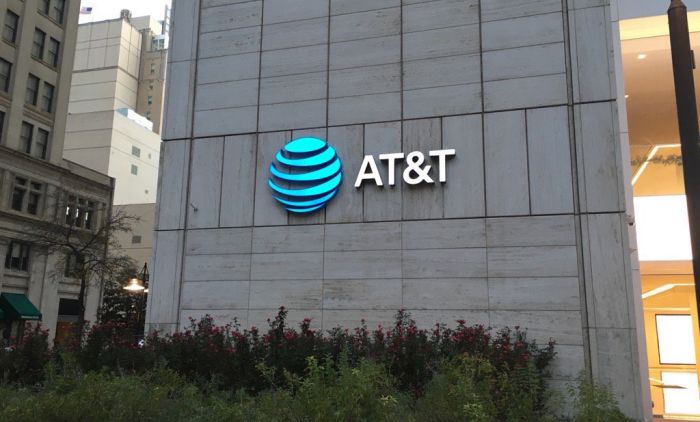A whistleblower alleges fraud in the audits of Silicon Valley companies; AT&T acknowledges that hiring Michael Cohen was a “bad mistake”; new analysis finds that Amazon has not been consistent with the stated selection criteria for HQ2; and a majority of Americans back a constitutional amendment that would outlaw Citizens United. This week in political economy.

- POGO (Project on Government Oversight) reports on the story of Mauro Botta, a former senior manager at PricewaterhouseCoopers who decided to become a whistleblower after he’d allegedly witnessed “sloppy if not misleading bookkeeping and weak internal controls” related to PwC’s handling of Silicon Valley firms. From the story: “Botta alleged that, to keep corporate managers happy and to avoid losing their business, PwC was pulling its punches—trying not to flag too many problems with companies’ internal controls.”
- AT&T and Novartis are in full-blown crisis mode after it was revealed that both paid President Donald Trump’s personal lawyer Michael Cohen hundreds of thousands of dollars in cash through the same shell company Cohen used to pay off Stormy Daniels. In an internal email, AT&T CEO Randall Stephenson said the company made a “big mistake” in agreeing to pay Cohen as much as $600,000 last year and acknowledged that the company’s reputation has been “damaged.” AT&T also said that its top lobbyist and senior executive vice president Bob Quinn, who oversaw Cohen’s hiring, would be retiring, though the Wall Street Journal is reporting that Quinn was forced to leave. Novartis CEO Vasant Narasimhan also told employees that the company “made a mistake” in hiring Cohen.
- According to documents obtained by the Washington Post, AT&T hired Cohen days after Trump’s inauguration to advise it “on matters facing the company at the Federal Communications Commission and the Justice Department,” including its pending $85 billion merger with Time Warner, which the Department of Justice is currently attempting to block. Despite reports that AT&T also hired Cohen for “insights” into how the new administration would deal with issues like net neutrality (which AT&T greatly opposed and which was ultimately repealed by the FCC in December 2017), FCC Chairman Ajit Pai said that Cohen never contacted the agency.
- From Huff Post: What did AT&T and Novartis get for the money they paid Cohen?
- President Trump laid out his plan for reducing drug prices in a speech on Friday entitled “American Patients.” Big Pharma may have been “girding for a fight,” but it appears that there is no reason for one. Trump the presidential candidate often railed against pharmaceutical companies and promised to fight them to reduce drug prices, but so far the president’s plan is a far cry from his campaign promises and is remarkably lacking in details, leading to a boost in pharma stocks. Trump “dropped the popular and populist proposals of his presidential campaign, opting not to have the federal government directly negotiate lower drug prices for Medicare,” writes Robert Pear in the Boston Globe.
- States and local governments spend about $45 billion a year on tax giveaways for corporations, in the hopes that these will spur development and create jobs. A new study finds that this is a waste of money. The New York Times’ Eduardo Porter reports.
For more on this, you can also listen to Luigi Zingales on the “How Do We Fix It?” podcast.
- From CityLab: Over the past year, 238 cities across North America submitted bids for Amazon’s second headquarters, aka HQ2. In January, the company announced the 20 finalists—presumably, the cities that best fit its stated criteria. Yet, a new analysis by University of Toronto researchers finds that Amazon has not been consistent or transparent with its stated selection criteria for HQ2: some cities that made the cut don’t actually meet the criteria, while some of the rejected cities did.
- From the Center for Public Integrity: a new study finds that most Americans—66 percent of Republicans and 85 percent of Democrats, to be exact— back a constitutional amendment that would overturn Citizens United. In related news, casino mogul and Republican megadonor Sheldon Adelson has reportedly given $30 million to the House GOP-aligned Congressional Leadership Fund in order to avoid a Democratic takeover of the House. According to Politico, the donation has been agreed after House Speaker Paul Ryan flew to Las Vegas to meet with the billionaire at his Venetian Hotel.
- From The Nation: Why did Senate Minority Leader Chuck Schumer hire an ex-Goldman Sachs lobbyist?
- In Huff Post, Zach Carter reviews the career of Eric Schneiderman, the now-disgraced attorney general of New York, who built a reputation as being tough on white-collar crime. “There is perhaps no reputation in American politics over the past generation more undeserved than the acclaim that has surrounded Schneiderman as a principled, tough-on-white-collar-crime Democrat,” he writes.
- In Project Syndicate, Dani Rodrik criticizes the Trump administration’s China trade policy, writing that “Trump’s trade agenda is driven by a narrow mercantilism that privileges the interests of US corporations above those of all others.”
- In the Financial Times, Rana Foroohar argues that the US should worry less about Chinese tech firms, and more about the monopoly power of Silicon Valley giants. “Monopoly power threatens the benefits of a decentralised system. In the US these days, it is not only small firms that are being squashed, but medium-sized and even large players, too,” she writes.
- In The Intercept, David Dayen writes about a new campaign of activist group Citizens Against Monopoly, which offers Facebook users a step-by-step guide to turn off Facebook’s targeted ads. Also in The Intercept, Sam Biddle reports on a new Harvard study that reveals why Facebook insists on remaining so vague about its targeted advertising: apparently, it turns people off to know they are being tracked. “If you track people across the internet, as Facebook routinely does, and admit that fact to them, the transparency will poison the resulting ads,” he writes.
- Barnes & Noble is in deep trouble. Unable to compete with Amazon, it just might join other deceased major book retailers like Borders. What might seem like a classic story of technological disruption, however, is really a story about America’s faulty antitrust regime and Washington’s leniency toward digital monopolies, argues NYT’s David Leonhardt.
- Walmart, currently mired in a battle with Amazon, has bought Indian e-commerce company Flipkart for $16 billion, outbidding Amazon.
- From Bloomberg: leading Democrats, among them Senator Bernie Sanders (I-Vt.), are proposing an overhaul to federal labor laws that could extend collective bargaining rights to huge swaths of the gig economy.
- In the Guardian, a long and fascinating piece by Sam Knight examines the $100bn eyewear industry, which is now set to be dominated by a new corporate behemoth named EssilorLuxottica. The new company is the result of the merger between Essilor and Luxottica, two firms with a “combined customer base that is somewhere between Apple’s and Facebook’s.” In seven centuries of spectacles, writes Knight, “there has never been anything like it.”
Chatter from the Ivory Tower
- Richard Tol has a VoxEU column out based on his new working paper on the professor-student links between Nobel prizewinners in economics. Tol writes: “72 of the 77 Nobelists belong to one family tree. The remaining 5 belong to 3 separate trees. There are 350 men in the graph, and 4 women. Karl Knies is the central-most professor, followed by Wassily Leontief. Harvard is the central-most university, followed by Chicago and Berlin. Most candidates for the Nobel prize belong to the main family tree, but new trees may arise for the students of Terence Gorman and Denis Sargan.” The full family tree is here:

- In an extended nod at the ongoing #WhatEconomistsReallyDo spat, the Economist’s economics columnist Ryan Avent this week rounded off a five-column series on problems in modern econ (on growth, business cycle research, micro research, values, and diversity). Some of the series has annoyed quite a few economists, in particular a passing reference to the work of Al Roth. Separately, Avent offered comments on the recent IGM survey question on occupational licensing for economists.
- A day ahead of his Thursday appearance alongside Stigler Center Faculty Director Luigi Zingales in the Chicago Booth Review’s “The Big Question,” Gabriel Zucman co-authored a Vox column on what his new research on the extent of tax evasion, which uses data from the 2015 Swiss leaks from HSBC, means for estimates of inequality.
Stigler Center Goings-On
- As ad revenue continues to decline, more and more news organizations are turning to paid and sponsored content. In the latest episode of the Capitalisn’t podcast,“Opinions for Sale,” Luigi Zingales and Kate Waldock revisit the decades-old music payola scandal and debate how to ensure proper disclosure in the digital age.
- Join us next week for three stand-alone, interrelated lunch seminars on problems of legitimacy for central banks in liberal democracies with Sir Paul Tucker, Research Fellow at the Harvard Kennedy School, Chair of the Systemic Risk Council, and former Deputy Governor of the Bank of England. Details here.
- The Stigler Center will hold its second annual conference on the Political Economy of Finance next week. Details here.
Disclaimer: The ProMarket blog is dedicated to discussing how competition tends to be subverted by special interests. The posts represent the opinions of their writers, not necessarily those of the University of Chicago, the Booth School of Business, or its faculty. For more information, please visit ProMarket Blog Policy.






